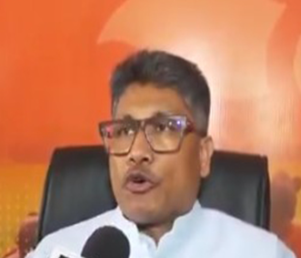PM Modi calls for deliberations on global food security at ongoing G20 Agriculture Ministers Meeting
Hyderabad, Jun 16 (PTI) Observing that the agriculture sector is facing several challenges globally, Prime Minister Narendra Modi on Friday urged the G20 Agriculture Ministers Meeting to deliberate on how to undertake collective action for achieving global food security.
In a video message to the meeting currently underway in Hyderabad, Modi spoke about the challenges being faced by the agriculture sector and said the supply chain disruptions caused by the pandemic have been worsened by the impact of geopolitical tensions.
Climate change is causing extreme weather events more and more frequently while these challenges are felt most by the Global South, he said.
“I urge you to deliberate on how to undertake collective action to achieve global food security. We must find ways to build sustainable and inclusive food systems focussed on marginal farmers. We must find ways to strengthen global fertiliser supply chains,” the Prime Minister said.
At the same time, agricultural practices for better soil health, crop health and yield should be adopted, he added.
Traditional practices from different parts of the world may inspire us to develop alternatives for regenerative agriculture, Modi said.
He also said there is an urgent need to reduce agricultural and food waste, and instead, invest in creating wealth from waste.
He said India’s policy is a fusion of ‘back to basics’ and ‘march to future’ as his government is promoting natural farming as well as technology-enabled farming.
Farmers all over India are taking up natural farming now and they are not using synthetic fertilisers or pesticides, he said.
Their focus is on rejuvenating the mother Earth, protecting soil health, producing ‘per drop, more crop’, and promoting organic fertilisers and pest management solutions, he said.
At the same time, India’s farmers are proactively using technology to boost productivity even as they are generating and using solar power on their farms.
The farmers are using soil health cards to optimise crop selection, and drones to spray nutrients and monitor the growth. “I believe this fusion approach is the best way to address several issues in agriculture,” Modi said.
Referring to 2023 being celebrated as the International Year of Millets, he said the “superfoods” are not only healthy to consume, but also help raise the incomes of farmers by using less water, needing less fertiliser, and being more pest-resistant.
Though millets are not new, markets and marketing had influenced our choices so much that the value of traditionally grown food crops has been forgotten, he said. He called for embracing millets as the food of our choice.
As part of its own commitment, India is developing an Institute of Millets Research as a centre of excellence for sharing best practices, research and technologies in millets, the PM said.
The farmers need to be empowered with innovation and digital technology and solutions must be made affordable for small and marginal farmers in the Global South, he said.
India’s G20 priorities in agriculture focus on healing our ‘One Earth’, creating harmony within our ‘One Family’ and giving hope for a bright ‘One Future’, he said.
He expressed happiness that the ministerial meeting is working on two concrete outcomes — the ‘Deccan High level Principles on Food Security and Nutrition’ and ‘MAHARISHI’ initiative for millets and other grains.
The support to these two initiatives is a statement in support for inclusive, sustainable, and resilient agriculture, he added.






